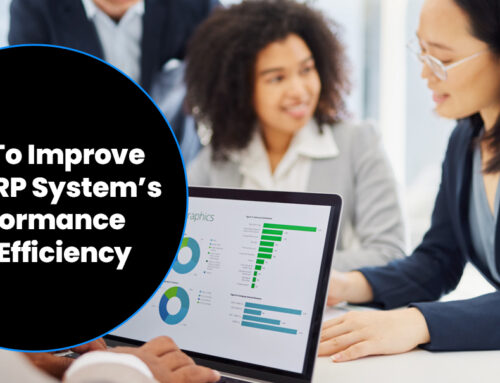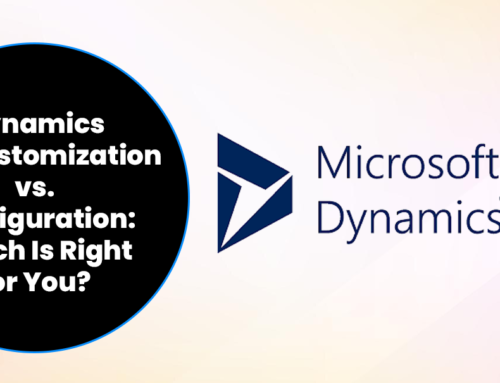
Enterprise resource planning (ERP) system implementation is a comprehensive process that entails pulling in data from a wide variety of sources. The typical ERP platform has multiple modules — one for each of the different departments and divisions within an organization. Each of those modules requires its own integrations and data flows. The latter involves data migration, which can be a significant challenge due to the logistics of this type of project, along with the amount of data that usually needs to be transferred.
Migration is one of the most difficult and complex aspects of an enterprise software implementation, so how can you make an ERP migration easier?
Understanding the ERP Migration Process
Before you can delve into simplifying and streamlining the migration phase of your enterprise resource planning software implementation project, you must have a good understanding of what’s involved in the ERP migration process.
An ERP platform typically takes the place of multiple stand-alone software platforms. Some of the most common are as follows.
- Human resources (HR) platforms
- Accounting and financial software
- Customer relationship management (CRM) software
- Marketing and sales software
- Inventory management software
- Project planning platforms
ERP migration refers to the process of transferring data from these disparate systems into the enterprise resource planning system’s database. This represents a major benefit of an ERP platform — all of your data is centralized in a single database, providing company leaders with a bird’s eye view of the company’s data. This data centralization also lends itself to the analytics and reporting tools that are commonly included as part of the ERP platform.
Common ERP Data Migration Challenges
Many assume that the data migration process is fairly simple and straightforward. After all, how hard can it be to just transfer data from one source to another, right? Well, it’s not quite that easy.
ERP data migration can be complicated — or even snarled — by a few factors.
- The data must be migrated in a manner that avoids any sort of corruption.
- The data will need to be protected during the migration process and handled in a manner that is compliant with any data protection regulations or rules that your organization is required to follow.
- Data must be transferred only once to prevent accidental duplication or even triplication.
- Data must be formatted properly once it arrives in the ERP platform; otherwise, you may end up with a mess of information that lacks formatting and context.
The timing of an ERP data migration project matters too. You can run into a situation where you have unmigrated data if there is a lapse between the time when the data migration is performed and the time at which staff stop using the individual platforms and start using the ERP platform. Therefore, the data migration is usually timed so that it occurs very close to the time of deployment. Otherwise, you may need to perform multiple migrations — one to migrate the bulk of your data and a second right before deployment to migrate any data that was generated after the first migration, but before deployment. A single migration will make for a much smoother and easier ERP migration process.
Tips on How to Make ERP Migration Easier
In addition to timing your ERP data migration in a strategic manner, there are a number of other things you can do to make the enterprise software migration process easier.
- Develop a detailed ERP migration plan – Your data migration plan should include a list of all data sources, who uses that data, the form and nature of the data, and information on how frequently that data is updated, added or modified.
- Involve representatives from all divisions – As you develop your plan, involve individuals who actually use the various platforms that will be included in the migration. They can provide valuable insights to help inform the process.
- Research your data export options on each platform – Data migrations can be complicated by a lack of options surrounding data export and data migration tools don’t always bridge the gap. Many platforms are not keen to empower users when it comes to moving their data off-platform. Therefore, you will need to spend some time researching each data source. Once exported, data may require some modification or reformatting in order to be suitable for migration into the ERP system’s database.
- Perform small test migrations – Your ERP implementation partner should be performing small test migrations in advance of the main event. This allows you to determine how well each data source transfers and what additional measures may be required in order to maintain data integrity as the information is shifted into the new enterprise platform.
- Research data handling regulations and ensure everyone is aware of what is required to maintain compliance – If you are in an industry that deals with personal data or other sensitive information — such as the healthcare industry or financial sector — then you are subject to strict regulations concerning data privacy and data handling. Take the time to revisit those regulations and be sure that your plan addresses those regulations in a way that will allow you to maintain compliance during and after the migration. Make sure all team members are apprised of the regulations too. Everyone needs to be on the same page concerning compliance.
Once the ERP migration process is complete, it is important that you take the time to spot-check your data to verify that everything has been transferred properly. This verification process can seem rather arduous and tedious, but it is essential if you are to be fully confident that the data’s integrity remains intact.
ERP implementations are complex and data migration can be downright disastrous if you fail to prepare properly. At Cox-Little, we understand how stressful an ERP migration can be. But it’s our belief that with a well-thought-out plan, an organization can streamline and simplify the process of transferring your valuable data into the new enterprise platform. If you are ready to start your ERP implementation project, contact the team here at Cox-Little and let our ERP experts guide you toward success.






Leave A Comment